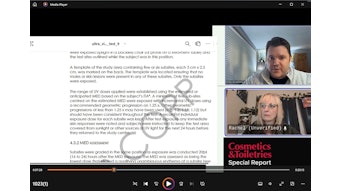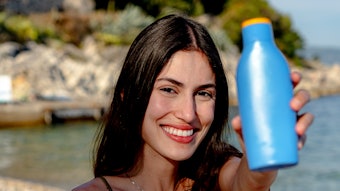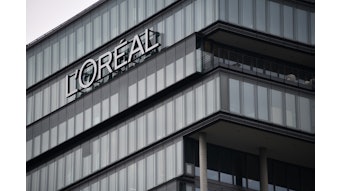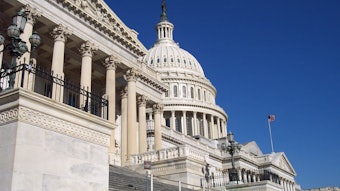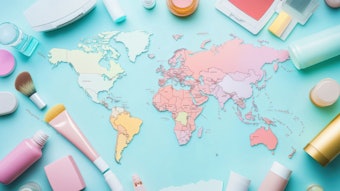On the Vietnamese market, cosmetics are classified as substances or preparations intended to be used on external parts of the human body—i.e., skin, hair, nails, lips and external genital organs; and/or teeth and oral mucosa—with the main purpose to clean, perfume, change the appearance or form, adjust body odor, or protect or keep the body in good condition. Such products must satisfy the Association of Southeast Asian Nations (ASEAN) guidelines for the disclosure of product features. Products requiring this disclosure are: creams including sunscreens, self-tanners, and anti-aging and whitening products; face masks; tinted liquids, pastes and powders; all powders; bath/deodorant soaps; perfumes; bath products; hair removal products; deodorants and antiperspirants; shaving products; makeup and makeup removal products for the face and eyes; oral care; and nail care products.
Sunscreens are classified as cosmetics in Vietnam and require notification but not as functional cosmetics. As per the ASEAN regulation, however, they must declare ingredients present on the Annex VII positives list. Further, a mandatory warning label both in Vietnamese and English is required, stating “Do not stay too long in the sun, even while using a sunscreen product.”
Responsibilities: The corporations or individuals responsible for placing a cosmetic product on the Vietnamese market must function primarily as a cosmetic business. The launch of cosmetic products on the market can only occur once the products are approved by competent state agencies, which will conduct post-trade testing of the products. Business owners bear the full responsibility for product safety, efficacy and product quality.
Notifications and requirements: Notifying regulatory authorities of cosmetic products to be sold on the market, per Circular Decision 48/2007/QD-BYT, requires the submission of a dossier including an authorization letter from the product manufacturer; a certificate to freely sell the products; and a Business Registration Certificate or Investment Certificate. However, importing cosmetics as gifts or for exhibition does not require notification. Such products should be presented bilingually, in Vietnamese and English. Additionally, the Circular regulates sampling principles, rights and obligations of sample recipients, and the transportation and delivery of samples, together with priorities for post-examination and financial sources for cosmetic quality control.
Submissions: The authorization of receipt and processing for a dossier is as follows. For locally manufactured cosmetics, the dossier is to be submitted to the Health Service in the case where a company has a factory. In cases where the company is not the manufacturer, the dossier should be submitted to the Health Service where the company is headquartered.
For imported cosmetic products, the dossier must be submitted to the Drug Administration. Specific to the Industrial Trade Zone of Moc Bai Border Gate Economic Zone, Tay Ninh province, the dossier must be submitted to the Management Board of Moc Bai Border Gate Economic Zone. Similarly, for trading cosmetics in the Lao Bao Special Trade–Economic Zone, Quang Tri province, the dossier must be submitted to the Management Board of Economic Zone, Quang Tri province.
Hair spray considerations: VOCs are not yet regulated in Vietnam. However, the industry could see a different regulatory body, such as the Department of the Environment, drafting circulars concerning chemical control. Such measures would allow time for businesses to comply. Hair sprays in general are controlled under the Global Harmonized System, which classifies pressurized hair sprays under Dangerous Goods Protocol 9, per the International Air Travel Authority and International Maritime Dangerous Goods; these legislations fall under the Department of Transportation


